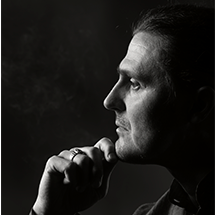FOUR ASPECTS OF PERSONALITY
Heading from the Light into the Darkness, the observer leaves the higher plane — the space of his Origins — and enters the inner plane filled with forces, where he no longer perceives himself as a witness to the truths, but as a personality divided into four hierarchical centres: mind, selfhood, body, and property, through which he masters the life manifested by its natural mediums. The four mediums of life, or any space in which a man may be present, were named by the ancient scientists as the primary elements “Air”, “Fire”, “Water” and “Earth” — in this particular order as they gradually become denser. This hierarchical sequence of primary elements or natural mediums in the perception of a man is unchangeable everywhere, that means it carries the function of a measure for him.
In the outer plane, the primary elements fractally correspond to their natural representatives — natural environments of the surrounding world and everything that inhabits them. Both internal and external environments are not just similar, but constantly actively connect with each other and interact according to their own principles:
- Air — the principle of hierarchy, or discernment — in a vertical system, a higher element controls the lower ones.
- Fire — the principle of centralisation, or dominance — in a horizontal system, the more central element controls the more peripheral ones.
- Water — the principle of decentralisation, or dissolution — in an open system, multiple peripheral elements control elements located closer to the conditional centre.
- Earth — the principle of multi-management, or inertia — in a closed system, each element is simultaneously subordinate to the multitude of elements surrounding it.
Internal and external environments represent different scales. On an individual level, in the inner plane, they designate corresponding centres of the personality, and in the outer plane — four types of personality, each of which manifests the power of the corresponding centre:
- Mentor — a man of mind.
- Leader — a man of selfhood.
- Craftsman — a man of body.
- Entrepreneur — a man of property.
This fractal correspondence of internal and external environments, as well as centres and personality types, can be continued on a larger scale and used to describe any organisation of society that is — consciously or unconsciously — divided into levels, or so-called castes: priests, rulers, workers and businessmen.
TWELVE FUNCTIONS
As an observer and an individual, we enter the outer plane of our existence through the channel of vision for the first time at birth and then each time after sleep — a small non-existence from the point of view of the outer plane.
The exit portal from the inside to the outside is indicated on the human body by the iris of the eyes, with its pattern and colour similar to precious stones, attracting the special attention of others. The diameter of the iris in proportion to the face from the eyebrow line to the edge of the chin is 1/12.
The face is the second part of the body attractive for other people, through which we, as a subject, manifest ourselves in the outside world. The height of the face in proportion to the body from the top of the head to the feet is also 1/12.
The eyes represent us as an entity from a higher plane, the face represents our inner personality, and the whole body represents us as a living being of the outer plane.
Due to the verticality, or uprightness, of the human body, as well as its anatomical, visual and functional features, twelve levels are clearly distinguishable in it, forming a semblance of a measuring scale. The heights of these levels vary slightly from person to person, which only indicates individual characteristics and the fact that this system of measures is truly alive:
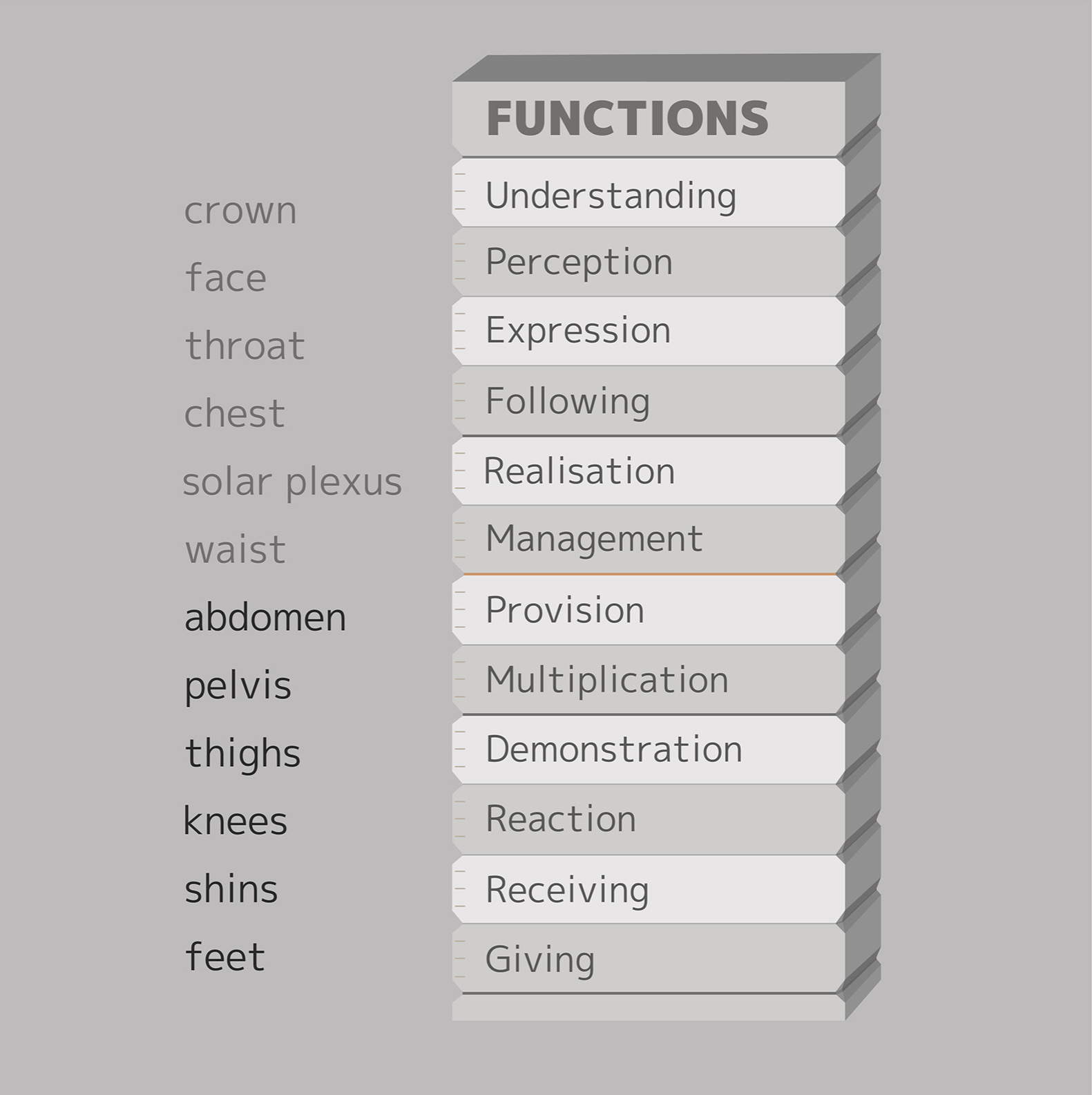
The scale of twelve functions can be quite easily felt in one's own body by almost every person, especially in the range from “understanding” to “multiplication”. Only the levels from thighs and below require clarification. Our thighs are the first part that comes out of the torso and is therefore associated with everything that we "demonstrate" to the outside world as ourselves or the value we have created. The knees show our “reaction” both to ourselves and to everything with what or whom we interact. The shins are responsible for a mutually beneficial contract with others in order to “receive” income as a result of positive mutual response. The feet complete this scale, showing the function of “giving” back to the environment what we have to.
The sequence and hierarchy of functions associated with the human body is unchangeable, which makes it a measuring scale that can be used as a scientific tool for studying everything related to man. This scale however measures not in conventional units or numbers, as is customary in objective science, but in human functions, as it should be in a science that originates from the observer.
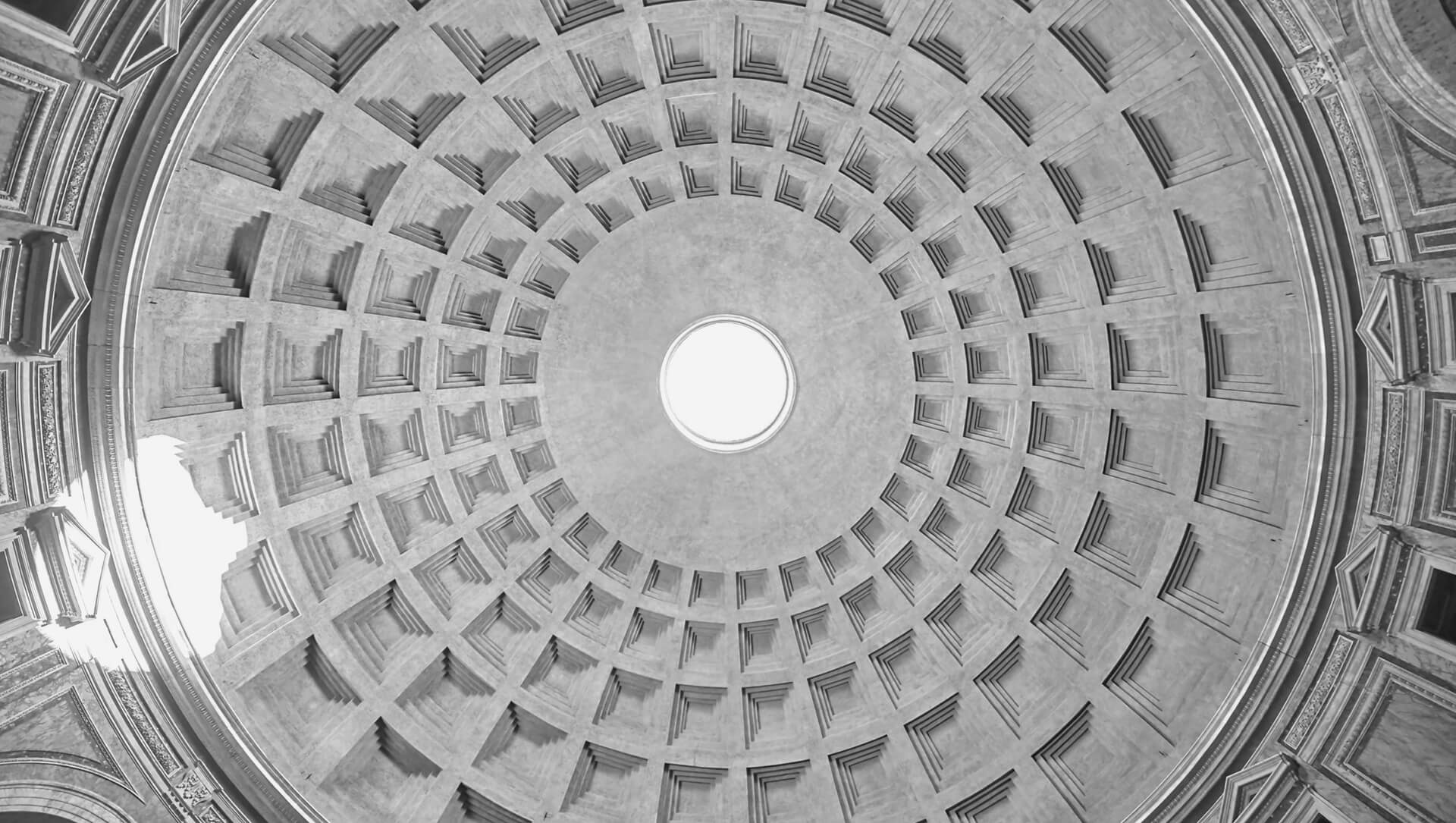
Description of the process of thinking that takes place in the higher plane of reality and is aimed at cognition.
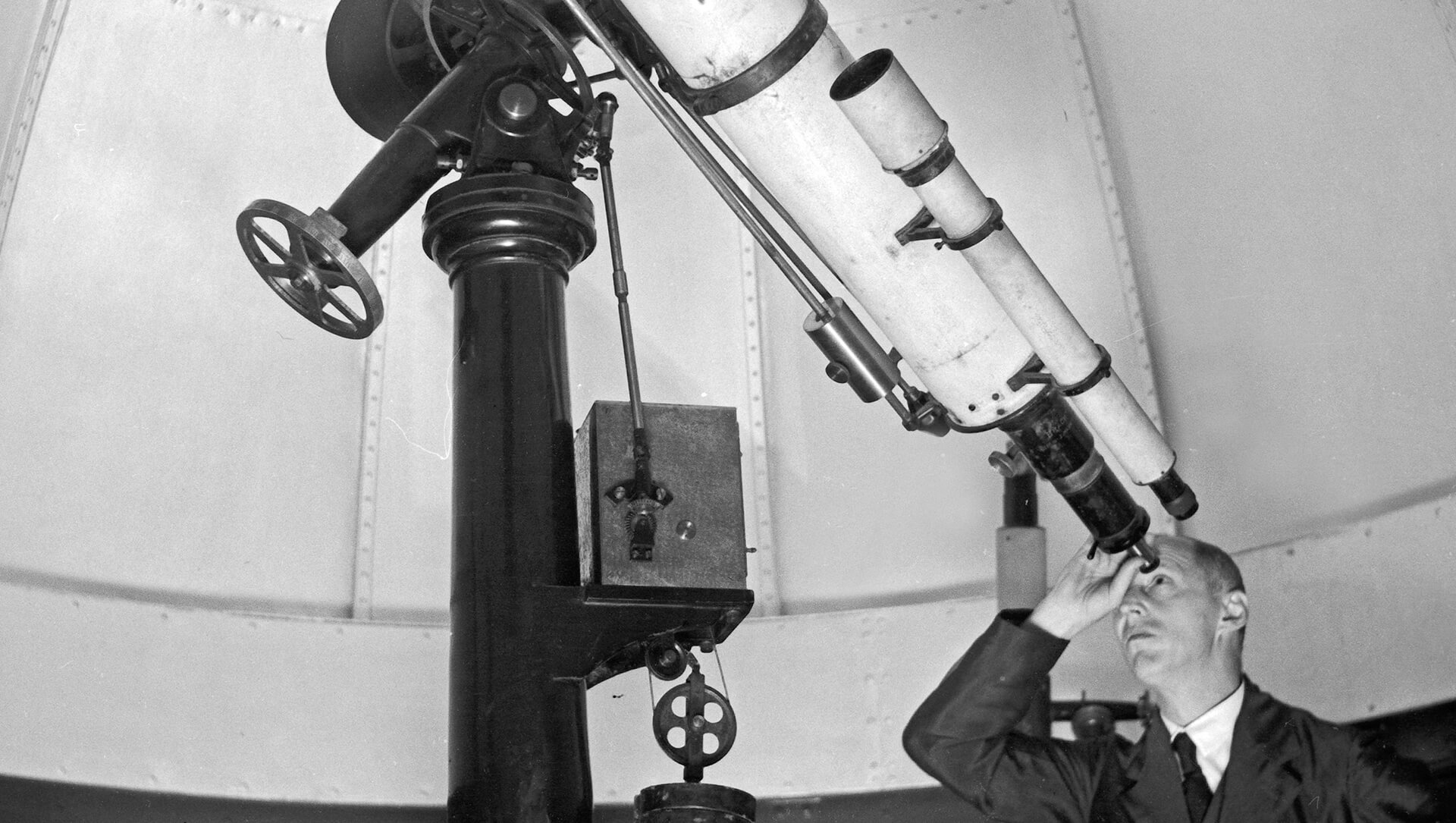
The crisis of the worldview. The need for a clear and holistic worldview that unites religion, science and philosophy. The individual's main choice.
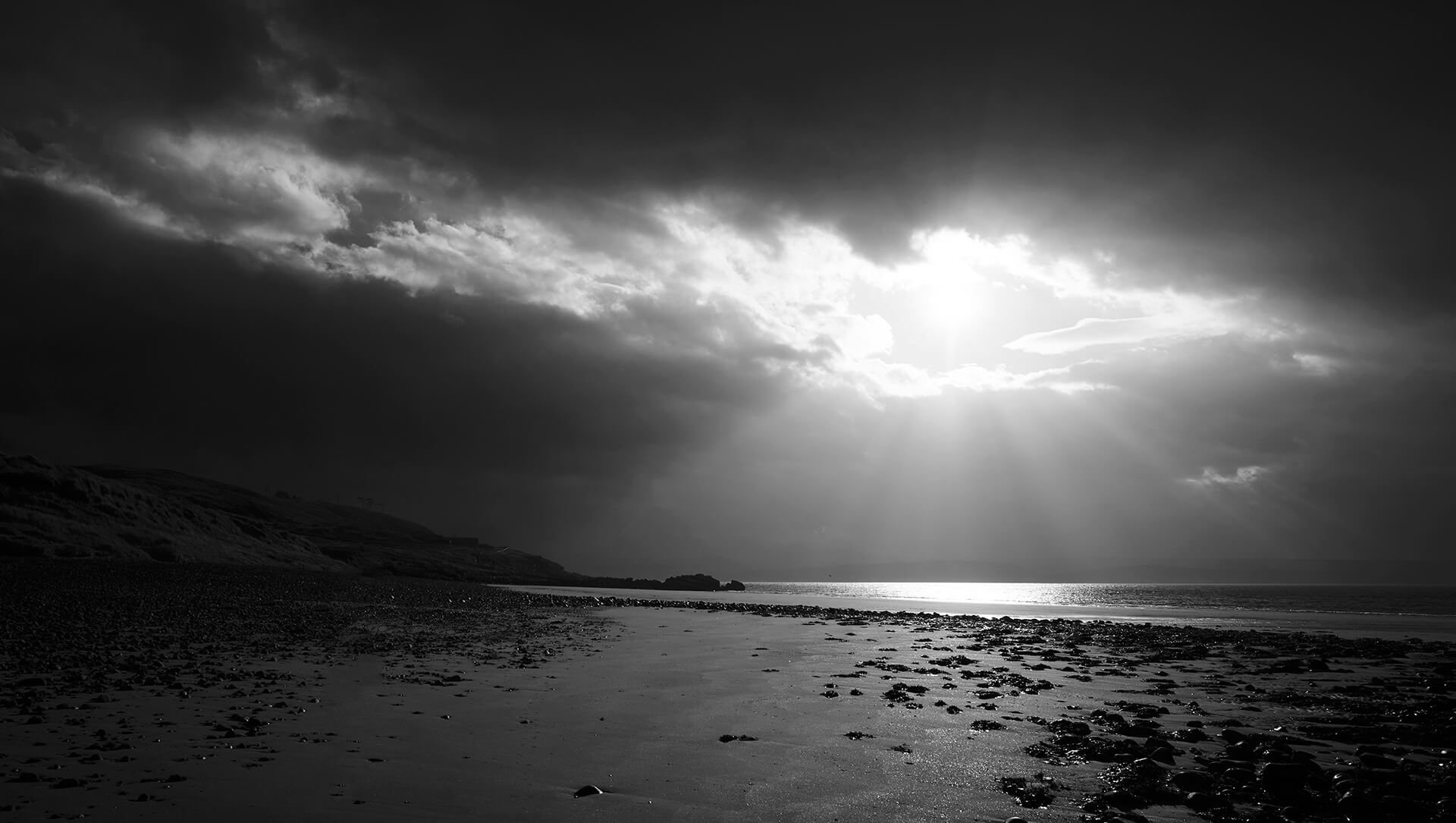
Sources of the worldview and its influence on an individual. The importance of a clear definition of terms. The need to restore culture.
